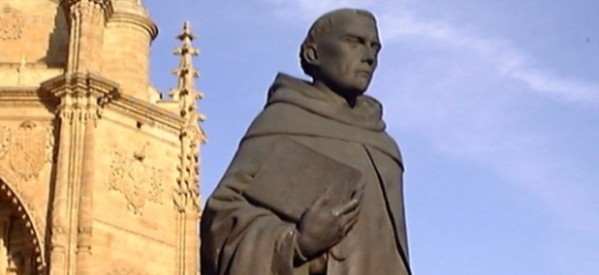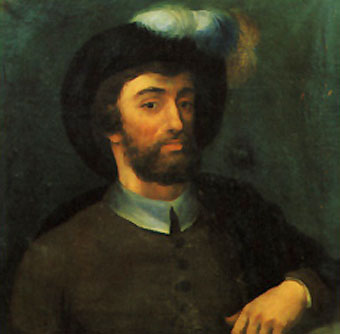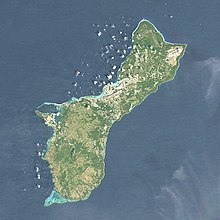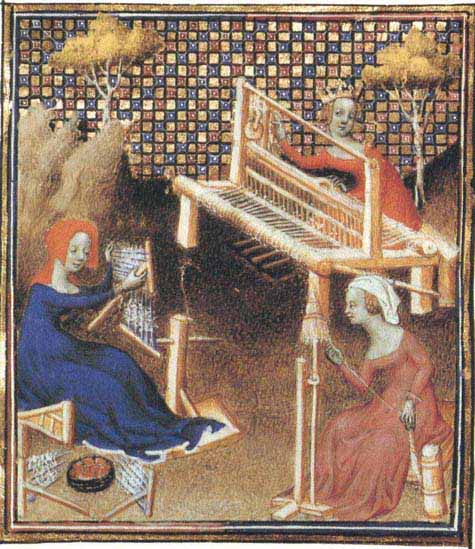Hi! I saw this thread some time ago but now have read through it, skimmed anyway!
@Padilla, I'll tell you as an English speaker that when we read terms like "comunera" in English, due to the fact that we don't use the same root words for towns, cities and so forth there is more of a subconscious association with deep political radicalism--a sort of "spectre of Communism" in the modern sense that might not apply at all to readers whose mother tongue is a Romance language. Or anyway this is true of me--I know full well that the root elements of the word need not have the same radical implications in Spanish, I know this consciously, but glancing at the title I tend to reflexively look for really deep radicalism, when in fact the "communities" your ATL Spain organizes around may be far less populist, much more "bourgeois" than a true grassroots democracy. I figure this is currently the case; none of the 15 comuneras the federal republic is made of are in the hands of the common masses, are they? In every case, the commoner element (which is moderated by 1/3 representation of the Church, presumably with high nobility ties, and the toss-up of the 1/3 army representation, which could be popularly inclined, but also due to strict rank structure with high officers being either purely noble or anyway with even low-born high officers if they are possible being coopted to the interests of the upper ranks of society could lean the other way) is not a delegate of the lowest ranks, campesinos and apprentice/journeyman let alone common laborer city dwellers, but rather the "better" sort of non-nobles--guild masters, ship owners, other rising and rich elevated types. That is to say, the nascent bourgeoisie.
Now I think maybe the notion of deep populist radicalism might still be lurking near the surface, because in general when one rips off the mystic majesty of the ruling classes, with their pretensions of being favored by God as projections of a top-down authoritarian model of society, a sort of shock wave of reduced social pressure tends to propagate downward. Look at the English Civil War and Commonwealth; having taken the radical step of denouncing the claim of the Stuart monarchy to the reverend agency of God, and implying that English monarchy was a matter of social contract and convenience of the English people as a whole, and indeed under Cromwell could be dispensed with completely, this definitely put wind in the sails of more grassroots, commoners of the lowly sort, notions that they too had dignity and agency and that the Commonwealth was in fact composed of their interests--thus, the Parliamentary "Roundhead" side of the Civil War had to contend not only with claims "from above" but their defiance of those claims opened the door to importunate claims from below, the religious Ranters extrapolating from the freedom of conscience claimed by more respectable Puritans to extend to their own radical freedom to utter claims of Holy Spirit inspiration that were a lot less orderly and useful to their social betters; "Digger" peasants and artisans claiming the priority of the common folk who literally dug the earth over parasitic "upper" classes. Cromwell was able to put them back down, but removal of the upper layer of authority in the form of monarchy revealed dramatically that notions of self-interest and claims of the lower against the pretensions and extortions of the higher orders went right down to the bottom of society.
And furthermore, even before the middling orders dared meddle around with experiments in decapitating their highest rulers, peasant revolts of various kinds threatened all medieval order everywhere, sporadically occurring perhaps not too often in any one place, centuries apart, but in enough parts of Europe that everyplace had its own local language words and historical memories of these social earthquakes.
I don't know Spanish history in tremendous detail, and I can't name a peasant revolt there; perhaps this is because until the later 15th century much of the peninsula was under Muslim rule and it was generally possible to divert potential triggers of that sort of unrest into military recruitment on a semi-Crusading basis to the project of the Reconquista, that perhaps the loot of incremental expansion of Christian ruled territory could always be in part distributed to the more active and potentially dangerous leaders derived from the common peasantry to set them up as new petty nobility in the conquered zones, while gradual expansion of the Christian ruled territory set against the ongoing attrition of the common population in the wars kept the sorts of crises that led to notable peasant revolts in England, France or Germany at bay. Perhaps also the combined authority of the militarized social order was more vigilant and interventionist in potentially revolutionary situations, overawing and repressing potentially explosive low-level dissent with a more assertive hegemony of combined secular power and religious admonitions to submit and comply (there being always the safety valve of recruitment to the fight against the Muslim Other to siphon off the more unruly sorts, so the residue of the more principled peasant opposition leaders could be isolated and dealt with punitively, using people who in other countries might be aligned with them to hunt them down and silence them).
Actually the famous "peasant revolt" of Germany (there may have been others before in the Middle Ages proper) people think of first is precisely happening in the time frame of your narration--for it was a swift reaction or effect of the Lutheran revolution in northern Germany. Whether it is better said to be a parallel effect of related causes, or a direct effect of the earthquake in social authority resulting from north German local lords declaring for their own authority and throwing off Rome spiritually and the Holy Roman Empire secularly is beyond my knowledge to have well founded opinions on, but either way the German Peasant Revolt was associated with the rise of Lutheranism, and indeed Martin Luther himself, defying the central authority of Rome in one direction, turned to affirm the secular and local authority of the better off classes against the unruly low-class mobs of the peasantry in the other.
So you see, the specter of truly radical and grass roots populist unrest is not so anachronistic or irrelevant--the bourgeois revolution of a Comunera Republic may well be expected to have a knock-on of really radical countryside and urban lower class populism in Spain. Perhaps you have this unrest in mind for future updates, or alternatively explanations why it is not so relevant in Spain despite the elimination of the top-down power of the monarchy. But since this radical image was something your very title conjured up in my perhaps peculiar mind, I thought I'd put it out there for discussion one way or another.
Another question that is being much discussed is the effect that the radical overthrow of royal authority in Spain has on her standing in the larger system of European Christendom, and indeed on the brand-new Empire of the Indies and other expressions of Spanish expansionism. I think the issue of Spain's place in the larger European state system is being dealt with pretty reasonably; Europe is not tremendously scandalized by a large region throwing off its monarch; instead they deal pragmatically with what this means for each ruler in each rival kingdom--France could reasonably see the republicans as enemy of her enemy (the rising Iberian monarchy already aligned with pretensions to the Holy Roman Imperial authority and hand in glove with a central Roman religious authority the kings of France often quarreled with)--Scotland traditionally allies with France on a similar principle and thus England allies with the central European powers mainly against France and also the only power challenging them on land, Scotland; Venice seeks to offset the otherwise overwhelming power of the central European Imperial system. Given the alliance of France, with the French king evidently not worrying too much about the risk of a Communalist threat in France itself, it seems reasonable that even suffering a bit of fragmentation the Spanish comunaras can prevail. Indeed perhaps it is too conservative to suppose the Hapsburgs can retain their residual but apparently not undermined authority in central Europe and Flanders, for I gather that OTL they drew heavily on Spanish troops to cement and extend that authority--here those tercios either don't exist in their OTL form at all, or if the organizational and manpower aspects of the mighty tercios carry over to the Republic, it is the 15 Comunaras who wield them. That's another specialized question--OTL I gather the real strength of the tercios came not from Spain generically but from specific parts of Spain, "Castile" in the most limited sense, and probably not all of that pre-unification kingdom either but certain core regions. These regions will be a limited number of the Comunaras of Spain here, with other Comunaras having somewhat different military traditions and developments. Is there some process dispersing the tercio form to all the Comunaras, so that they are roughly equal, and either the level of recruitment is lower because Republican Spain is collectively strong enough not to need so many troops, meaning a radical reduction in this sector of employment in the OTL core recruitment provinces offset by somewhat greater militarization of OTL less armed provinces, or is Republican Spain still so embroiled in hot military conflict they need to raise all the troops and more that the Hapsburgs did OTL? We see that for the moment anyway, Aragon remains a serious threat--after all, there might be factions in Spain that would like to see monarchy return, and the Aragonese monarchy is the major claimant to the throne of all Spain I would think. And of course Aragon remains the strong rival of the Spanish trading cities. Meanwhile Portugal is also a threat--you dealt with that reasonably I think with the capture of King John, but I wondered then, why not annex part or all of Portugal to the Comunera Republican system, seizing Portugal's Tordesillian claim rather than arguing the Treaty is a dead letter which merely opens the way for Spain to replicate and compete with Portuguese enterprise--if they can! If the Republic can annex Portugal they can then claim a special right to exploit the entire extra-European world!
Again--if they can! OTL Cortez and Pizzaro and other Conquistadores conquered in the name of the Spanish monarch. Will these wild gangs of aggressive and greedy men have the same loyalty to a communalist republican Spain? They might very well, and your TL assumes they carry on and subordinate the same New World conquests. But having done so, even if they remain "Spanish" in the sense of deferring to the authority of the Old World based government, will it be as feasible as OTL for a mere federal republic to impose the same degree of control and collection of revenues from the enterprise of exploitation of Indians and imported slaves as the OTL Spanish kingdom--backed not only by monopoly of the tercios but extended Hapsburg power in central and northern Europe as well as hegemony over much of Mediterranean Catholic lands? Here the Federation of Comuneras controls just Spain only, and not all of what we OTL call Spain either. Their pockets are not quite so deep, therefore can they compel men like Cortez to hand over so much of the silver and other precious metal and other loot from the former Mexican and Inca zones? Or might not these men leverage their local position and the weaker power of Federal Spain to their advantage, claiming a larger share of the loot for themselves and setting themselves up as either strong players, if from afar, in the Federal system, or conceivably either hiving off on their own hook as new monarchs of new American empires, or intriguing with the Hapsburgs or conceivably rival great kings--the Valois of France, perhaps--to submit loosely to another hegemony they will uplift with moderate doses of the treasure tribute that so strengthened the Hapsburgs OTL?
With questions like that in mind, I wonder at the logic of simply overturning Tordesillas. I can see that from the point of view of the 1520s, when the enterprise of the Indies would be initially in doubt, with Cortez's conquests either in the future or ongoing, that the Americas might be a perhaps dubious prize. It was not yet known whether a better passage to the Pacific and hence to the known, sure thing wealth of East Indies spices than the terrible southern passage existed but I think by the 1520s everyone was already despairing of a Northwest passage--not entirely yet but it certainly would not be easier than the southern passage, with knowledge of the continuous solid coastline from known subarctic North America all the way down to Patagonia being pretty well established--of course a Central American port on the Pacific side could serve but the eastern route around Africa was clearly a good one, offsetting the drawback of its roundabout passage (no worse than circumnavigating the Americas anyway) with additional opportunities for great profit from the African coast itself. Portugal may have been seen as having the better deal, even factoring in known American opportunities. The logic of declaring Portugal's monopoly null and void may have been very appealing, especially since France was an ally and the French king may have had some influence on the decision.
However, even if Portugal cannot be simply conquered and absorbed with the resulting expanded federal Iberian republic claiming both monopolies outright, perhaps given the debacle of Portuguese arms in the peninsula, the Republic might leverage a deal. Say the King of Portugal, under the force of Spanish extortion, "freely" agrees to a compact with Spain whereby each state maintains a coordinated monopoly oversight and share of net plunder and profit, and agrees to rebate the other with a fixed share of those regime tributes--say 10 or 20 percent, in the context of a perpetual alliance whereby Spanish and Portuguese enterprises recognize each other as partners. So, a Spanish ship shows up in Macao; the Portuguese assure the Chinese these slightly different foreigners are under their protection, and the Spanish can get whatever they can via trading. The Spanish profits, back in Iberia, are accounted first of all as part of Portugal's tribute to Spain, offsetting anything Lisbon would have to otherwise pay out of Portuguese hauls, and if it exceeds that then the percentage share of Spanish profits Portugal is entitled to applies to the excess and Spain pays that share to Lisbon. Vice versa Portuguese ships can go to Veracruz or other Spanish ports in the New World and trade as they like there, and again if the Portuguese outtrade the Spanish, they wind up paying some of the proceeds to Spain anyway. Each profits from the ventures of the other, and in the Eastern hemisphere Spanish ships and enterprises submit to Portuguese commands while the opposite is true in the New World. Against third parties, heathen or Christian, the two fleets and land based regions cooperate to defend or attack, all for one and one for all.
I appreciate that aside from crass short-term interests, part of the repudiation of Tordesillas was the influence of the legal reasoning of de Vitoria. But while simply tossing out the treaty is one possible application of the doctrine that the Papacy should not have secular power, based on the notion that the Treaty was a dictatorial proclamation of the Pope as a secular hegemon, there might be another reasonable interpretation--which is that the Pope served not as an overlord apportioning spoils to two favored subjects, but as a mediator between two sovereign powers which each had secular claims stemming from their individual enterprise. The Portuguese had invested in advancing the art of seamanship to an unprecedented degree and funding long range ventures that paid off in alternate access to East Indian goods to the benefit of all Christendom; vice versa Ferdinand and Isabella had run a considerable risk seeking a western passage and had discovered new lands thanks to their own enterprise--therefore the exclusive claims of the two Iberian states to the entire extra-Christian world between them were founded on their bold enterprise, and demarcating the bounds between them was not a matter of the Pope claiming sovereignty but rather of a fair mediator bringing peace to a potentially fratricidal quarrel; the authority of the monopoly claims resided with the secular realms, not any claim of the Papacy to have lordship over anything worldly. The Pope served a properly spiritual role in bringing light to the murky darkness of rival claims and finding the fair balance. Now it could be that if I read the literal words of the OTL Treaty, which is pre-POD and thus fixed as the same in the ATL, I might find that the language clearly asserts Papal secular power and thus such an interpretation might be far-fetched, perhaps to the degree of being absurd on the face of it, and the Treaty might be completely insupportable to any follower of de Vitoria. But maybe not!
Still, of course, the Republic of Spain must be realistic, and Spain though quite strong, perhaps strong enough to retain the submissive allegiance of the Empire of the Indies (under whatever name it has here) is not as strong as OTL when it was continuous with the larger Hapsburg system. Without believing themselves to have the option of imposing their central views by sheer force on the rest of Christendom, Spain's claim on a monopoly of ventures to the west of the treaty line is a dead letter, especially if they abandon Papal authority--and since Spain here has far less control over the Papacy than the Hapsburg influence gave the kingdom OTL, it is surely in Spain's interest to disavow Papal secular authority! If Spain cannot enforce her claimed western monopoly against strong European rivals, she surely will not want to be bound to respect Portuguese claims unless there is something in it for Spain. Surely simply tossing the Treaty of Tordesillas aside is a straighforward and easy path to take, but in so doing Spain throws the Atlantic wide open to any other European power capable of sustaining transAtlantic fleets.
We have as an example France simply acting on the apparent freedom of the seas and we can see how profitable this could become for the French crown in the future. Certainly there is no reason the French might not preempt OTL New York harbor and the Hudson corridor to the Great Lakes! Giving New Angoulême the
exact same shape as OTL New York State seems a bit egregious to me--but I respect that it is not easy to draw up fresh maps and we get the general drift; my presumption is that as the story of French holdings in the New World evolves, we'll eventually have someone draw up a contemporary map based on the true facts on the ground. Certainly New York state OTL is shaped to a great degree by objective geographic considerations, the Mohawk Valley route (as I believe the appropriate Interstate highway is labeled OTL) is dictated by a river valley, the shores of the lake it leads to and the westward extension also exist in the geography. I do question though why the French bother to replicate their OTL venture up the St Lawrence River when they already have control of another route to the same goal. OTL of course the Great Lakes were first "discovered" as far as Europe was concerned by the latter route, and it was only some time later than it was learned that they could be reached from Manhattan instead via the Hudson. Also there is some overland portage involved in either route but the St Lawrence route has a lot less of it, making up for being more roundabout to Europe and passing through somewhat more challenging lands in terms of winter navigation--still, New York state of OTL is not a lot less difficult in winter than lower Canada! I believe the Hudson valley and branching out along the southern lake shores would be more rewarding agriculturally in the long run, but it would take centuries for even a vigorous colonization movement to fill up either, and until it becomes a matter of having taken up all the choice land and forcing new clearances on the more marginal land, either one is equally wide open (and, given possible Native resistance, equally difficult--indeed the more marginal situation of the northern route might mean fewer Native opponents and thus favor the St Lawrence for that reason as well as easier portage).
Nor have I forgotten that initially and for a long time under French rule, indeed to its end and beyond OTL, the profitability of operations in the far north of North America was mainly in furs, which are not so restricted to good agricultural land but can be profitably got even in the farther northlands that are not so much any good for farming.
Thus, New Angoulême, not New France, is the big anomaly here. With foresight of either heavy settlement or a vision of converting and Europeanizing the Native peoples of the Hudson valley and beyond as loyal Christian and Europeanized subjects, seizing control of Manhattan and the mouth of that river generally is a clever move--but it requires a working knowledge of the general geography of the OTL upper Atlantic states and eastern Canada to plot it that way; given the poor state of knowledge of North American geography in the early 16th century the French (assuming they manage to hold on to these lands for a long time) got lottery lucky stumbling on two of three of the best routes to the Great Lakes country--the third being of course up the Mississippi and claiming by the way all that broad and in the southern reaches semitropical land as well; it is no accident the French developed the strongest claim to that country OTL having gradually expanded into the Great Lakes region from the northeast, up the St Lawrence. Fourth and fifth routes, via the Ohio country, also exist from the Atlantic coast via the Chesapeake, going up the Potomac to Shenandoah and thence northwest through Appalachian passes, and more directly west to the Cumberland Gap and thence into Kentucky and Ohio that way, but as beelines to the Great Lakes these are inferior. Did I overlook some great expedition bolder and sooner than anything OTL from the Atlantic coast that found the Great Lakes earlier, forcing earlier more systematic exploration and evaluation of alternate routes to there than OTL?
Even in that context, I think that unless the French envisioned settler or plantation colonies, if they were going to rely on the fur trade their best route remained the Saint Lawrence, not the Hudson. And looking ahead to a future of dense agricultural development would require prescience on the time scale of centuries! The pattern then might well claim and preemptively develop the Hudson route early on but having secured an alternate lifeline to the Lakes to the St Lawrence on the Hudson, initial heavy settlement or aggressive acculturation and dominance over Native peoples (which would be frustrated by rapid die-off due to exposure to disease, and need to switch over to a heavy settlement program anyway, albeit perhaps with more intermarriage with Native survivors than common in the OTL English colonies) will spread out on the Atlantic coast, up to Massachusetts if not beyond and down to at least northern New Jersey --maybe the Pine Barrens will be the limit. The regime clearly desires to control the Great Lakes so urging colonists, traders and missionaries on up the Hudson is a priority, but a certain amount will stick to the coast, and letting some do so is good policy too, to give the defense of the Hudson mouth city some breadth and depth versus rival powers striking from the sea.
Speaking of which...I've already pointed out I think that the house of Hapsburg suffers two major axe blows relative to OTL just as they are emerging as the greatest power in Europe--one, they have lost control of the formidable bodies of Spanish tercio soliders that OTL allowed them to dominate the 16th century, and two, they will not be getting the benefit of the treasure shipments from the Americas. Indeed I wonder if Cortez and Pizarro setting themselves up as brigand kings is not the most likely outcome, with the treasure of the New World going to open markets of their choosing to buy luxuries and arms for Mexico and Peru, and the follow-up to the initial waves of purely Castilian invader-conquistadores being to throw the door open to any ambitious thug who can impress the respective dictators with their usefulness and loyalty--leading most likely to a Time of Troubles as various gang leaders either carve off petty kingdoms of their own or are beaten up by others for trying to do so. You seem to be assuming that the new Spain manages to have the same ruling authority as the OTL one, which I think is hardly ruled out though the new regime seems inherently less suited to maintain the kind of ruthless control Spain did OTL. Well, you hardly promised a Utopia and de Vitoria or no de Vitoria, colonial policy may well be just as pragmatic as it was OTL. Needless to say this gives Spain more of a stake in America and an argument against repudiating Tordesillas.
But you are also being conservative in assuming that somehow or other, despite these major blows, the Hapsburg house continues to play its role as OTL in the rest of Europe-indeed doing a bit better against the Ottomans it seems. I do not know enough about the assets the Hapsburgs had early in the 16th century beyond those Spain brought them. So it may be that they had enough to fall back on to continue to make the most of the remainder of their holdings and continue to expand on a shoestring compared to OTL--maybe here they are more efficient or something.
Given that they do not collapse and open the way for some other powers we either discount or never heard of OTL, they seem to be in a good position to challenge the Spanish Republic for the New World. If the Spanish repudiate Tordesillas, then the Hapsburg house can argue that as rightful kings of Spain and heir to Ferdinand and Isabella, the treaty was between their royal inheritance and the royal house of Portugal, not between the nations, and thus now it is Spain's claim to the New World that is voided, while the House of Hapsburg claims to retain the right to operate west of the treaty line. And they currently have control of Flanders, which I believe includes control of the Lowlands inclusive of modern day Netherlands as well as northern Belgium. Anyway at this date it is the Flemish lands of Antwerp and other southern cities that dominate, Holland and other OTL United Provinces lands are poor cousins. In addition to Flemish shipping, the Hapsburgs allied with Henry VIII's England, and the issue of the annulment of his marriage to Catherine was favored by the Pope here so for the moment England remains loyally Catholic and logically aligned with the Hapsburgs. To be sure I caught two flies in the ointment--one, it is specifically Henry's marriage connection to Spain that he has put away, which is somewhat awkward for the Hapsburg alliance, and two, he is taking up with Anne Boleyn. Now I did not know that she had either French or Lutheran connections, but you said so. Still England seems more likely to remain anti-French in policy, though I won't cry foul if that gets reversed for a while. Assuming the alliances of the last war stay the course for a while, Henry is a Hapsburg ally and if the Flemish are not enough for the Hapsburgs to horn in on the New World, the English being invited along for the ride will multiply Hapsburg resources for the Enterprise of the West Indies further.
Now if Spain does not denounce Tordesillas but either stoically accepts that Portugal has them sewn out of the African and East Indies markets, or as I suggest strongarms the Portuguese into joining with Spain at the hip for mutual profit and adventure, then the Hapsburg claim is more cloudy, and it puts the ball in the Hapsburg court to defy the Papacy openly--at a time when the French have more influence over Italy than OTL! The Spanish could keep Tordesillas, having de Vitoria interpret the treaty as I suggested as a matter of mediation rather than decree, and still bless the French enterprise as a matter of discretion, for France is currently an ally and unlike Spain is not plundering cities of gold but humbly scratching out a modest profit in the fur trade. What both Spain and France are against is the Flemish or English messing around in America!
At the end of the day though, I may be underestimating the power of principle, and after all I have not read the treaty and perhaps the idea of Papal sovereignty is too embedded in it to be reinterpreted.














